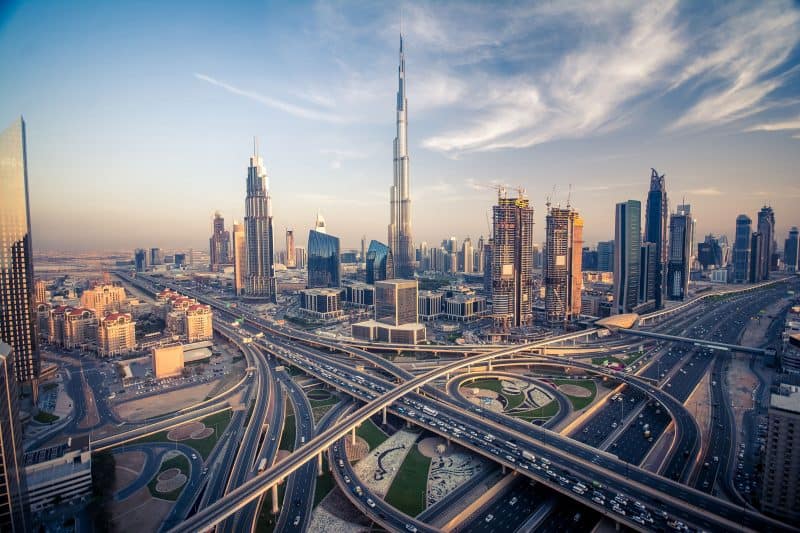
The Dubai Free Zones Council (DFZC) has, alongside mainland authorities, instigated a number of initiatives to help SMEs operating in Dubai’s free zones in a move to further stimulate the sector.
Along with the free zone authorities of Ras Al Khaimah Economic Zone (RAKEZ), Umm Al Quwain Free Zone (UAQ) and others, these initiatives and stimulus packages come in response to the business interruption caused by the Covid-19 pandemic.
But what are the specific initiatives available in mainland Dubai and its free zones, and how do they compare to others in the UAE?
1. The Dubai Department of Economic Development (DED)
Although not a free zone, the government body charged with setting and driving economic policy in the emirate of Dubai has introduced a raft of measures to help SMEs in the emirate and to provide leadership.
Firstly, it has moved to compulsion to complete EJARI – the mandatory process by which you were required to register new lease agreements and renewals through Dubai Land Department –for new leases only.
This means that lease renewals still have to register with Real Estate Regulatory Agency (RERA), the regulatory arm of Dubai Land Department. You will still have to complete EJARI for all the other services it covers, including the Dubai Electricity and Water Authority (DEWA) registration, the renewal of residence visas, internet connection, employing domestic staff, and for acquiring liquor and commercial licences.
Furthermore, a number of fines have been waived until Q1 2021, and in a partnership between Dubai Land Department’s Real Estate Regulatory Agency (RERA) and a group of property management companies in Dubai, flexible instalment plans for service fees and costs have been introduced.
2. Dubai Multi Commodities Centre (DMCC) Free Zone
Initially only available until the end of June this year, DMCC has extended some of its initiatives beyond the June deadline, which had already been in place since April 1.
Along with discounted government fees offering reductions of between 40% and 50%, new business setups can enjoy a total company setup fee discount of 50%, currently extended to July 31 2020, and an 80% reduction for Jumeirah Lake Towers Free Zone (JLT) company setup if shareholders are JLT residents.
Currently extended until August 31 2020, DMCC business support packages offer a 100% waiver for late licence renewal penalties and for DMCC Business Centre penalties until 2021, as well as a 30% discount when you take an additional licence, and a 50% reduction in dormancy fees. This means that DMCC’s 17,000 enterprises now have much-needed breathing space, if needed, to freeze their company more affordably and take stock before being forced to decide to close.
3. Dubai South (Dubai World Central) Free Zone
In addition to waiving all penalties for late licence renewal or cancellation, DWC has also offered a reduction of up to 25% on rental fees for all new businesses, with first-year licence fees completely waived for Business Park Free Zone clients and all new companies in the aviation, logistics and e-commerce sectors.
Dubai South Business Centre clients renewing their contracts before October 2020 also stand to gain from a discount of up to 25% on their renewal fees, and even if renewal falls after the current October deadline, customers can still enjoy a 15% discount if renewal fees are paid in full, or a 10% discount on quarterly-payment renewal.
Discounted government fees also apply, with a one-third reduction on the Business Centre’s “permanent office” package.
4. Ras Al Khaimah Economic Zone (RAKEZ) Free Zone
Currently only available for a limited time, the reduction in standard government fees for a “my business package” represents a saving of over one-third.
The package includes a 12-month licence and establishment card, a three-year visa and status change and a medical and Emirates ID.
Further enhancements to the incentive also offer a 25% discount on full dependant visa packages, needing only a 50% down-payment, with the balance not due until after 6 months.
5. Dubai World Trade Centre (DWTC) Free Zone
As of July 2020, all fees relating to DWTC have reverted to the fee structure in place before the Covid-19 pandemic.
That means that a General Trading Licence for an executive office, either as a Free Zone Establishment (FZE), a Free Zone Company (FZCO) or as a branch office, is now set at AED 52,500 for one year.
Commercial/professional/event management licences, whether FZE or FZCO, now cost AED 51,300 for an executive office, with the lower-end “hot desk” available at AED 28,300 for a 12-month licence.
6. Umm Al Quwain (UAQ) Free Zone
The standard government fees have not changed, but each now provides one extra visa. Other changes mean that each package now includes registration, licence, a shared desk station with a legal address and a promise of no hidden charges.
Although the previous three-month bonus offer for new entities on their lease and licence expired in mid-July, which gave 15 months for the price of 12 months, UAQ has now added e-commerce as a permitted business activity to the commercial/consultancy licence.
In short, you will now pay the same AED 13,500 for a startup business licence, but you will receive two visas instead of just one. At the other end of the scale, a premium commercial/consultancy licence will cost AED 32,500 but you will receive four visas instead of three as well as the inclusive measures mentioned above.
Addressing the impact of Covid-19
As the global pandemic has unfolded, both the UAE federal government and the Dubai government have been quick to tackle the challenges head-on, introducing a range of measures to free liquidity and support and stimulate businesses.
But the UAE’s individual free zone authorities have also been taking action to support SMEs, which already constitute 95% of all establishments in Dubai. They have played their part to help the all-important SME sector survive, thrive and grow, as they continue to drive forward the Dubai Government’s Dubai Plan 2021. This not only recognises the importance of SMEs to the local and federal economies, but aims to increase their GDP contribution to 45% by 2021.
The Covid-19 measures and initiatives announced so far appear to align with the aims of that strategy.





